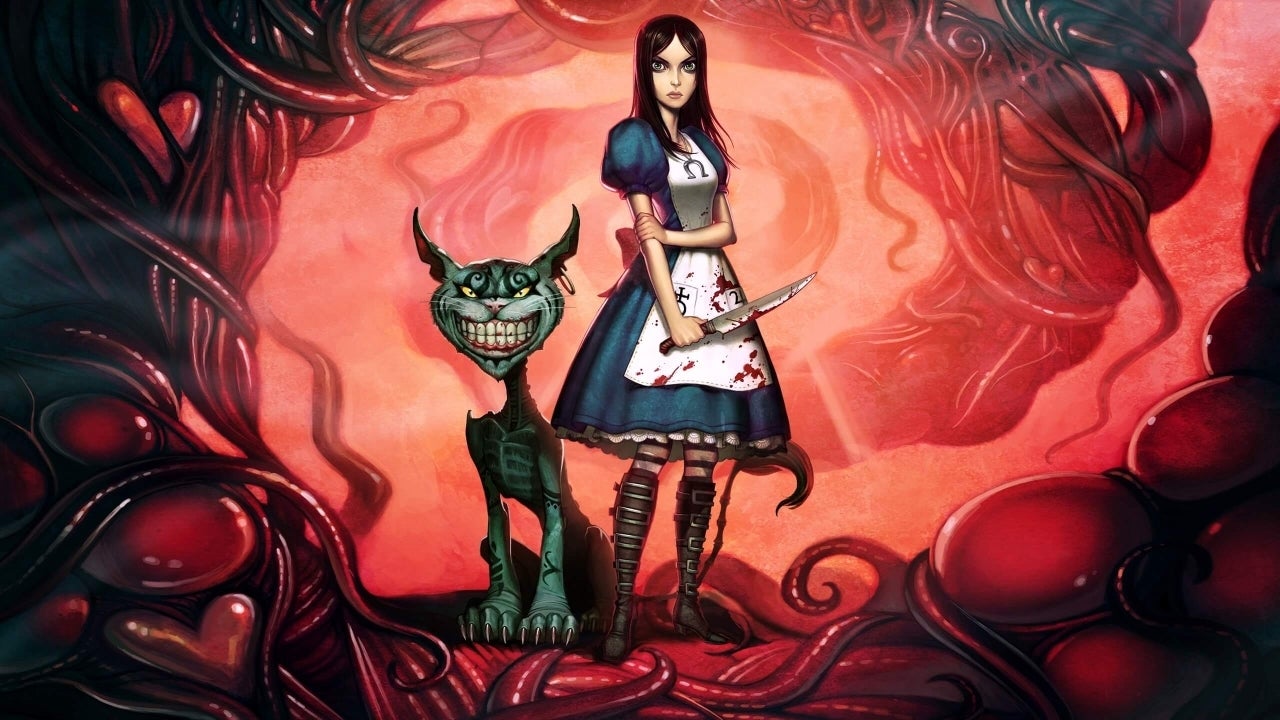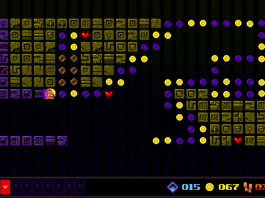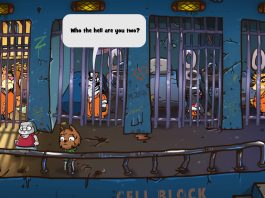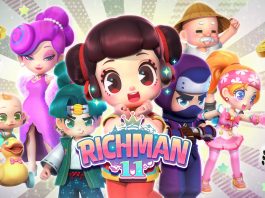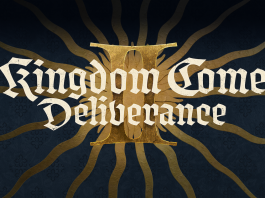“If ignorance is bliss, I must be ecstatic!”
American McGee’s Alice is the closest you will get to Wonderland. It is a third-person shooter/platformer released for the PC on December 6th, 2000 (and later released on consoles including Xbox, bundled with its sequel, Madness Returns), developed by Rogue Entertainment and produced by EA. McGee uses his experience garnered working on Dooms and Quakes alike among the talented crew at Id Software to bring us a masterclass in atmosphere and subversion of classic literature.
The story revolves around a young Alice Liddell suffering the loss of her parents and elder sister during a house fire. Alice, incarcerated in Rutledge and mostly catatonic, travels back to Wonderland to find it very different than how she left it. With the Cheshire Cat occasionally giving her words of advice, Alice must traverse a Wonderland brought to ruin by the tyranny of the Red Queen. Alice, ultimately, provides a story of suffering loss and the arduous path one must take to pick up the pieces and learn to cope with trauma.

“I’m not really a player. What are the rules?”
The gameplay involves a lot of platforming with combat taking the form of a third-person shooter, clearly influenced by the work McGee did on both the Doom and Quake franchises. Alice sports the classic assortment of Doom weapons, though one might strain to see it as they sport very Wonderland colours. For example, the playing cards allow for a primary fire that is akin to the chaingun, whilst its secondary fire is a burst with scattering shots akin to the shotgun. It also has a powerup called the Rage Box, which will increase Alice’s damage in a way reminiscent of Doomguy’s Berserk powerup. Whilst it does borrow from these designs, it does not constrict itself to them. The demon dice are a good example, randomly spawning in a creature to aid Alice in fighting enemies, however it will turn on you if it is summoned without any foes present. There are also the jacks, which bounce around and strike the enemy multiple times as they bounce off of them and the floor and walls around them. It is clear that, whilst his previous works provide a template for this game, it is simply a jumping off point and is not simply a carbon copy.
Movement feels somewhat floaty, as if Alice has less friction with the earth than she should. This carries into her jumps and can often make tricky platforming sections a little more frustrating than usual. However, by the time you’ve reached the sections requiring more precise manoeuvres, you will have acclimated to the feel of the game. Again, for those of you old enough (or retro enough) to have a lot of experience with the Doom games, you’ll understand what you’re in for here.
Ammo is not present here, instead replaced by a willpower bar – essentially, Alice’s mana bar. Using any weapon that isn’t the Vorpal Blade will deplete the bar, with different weapons and their primary and secondary fires reducing the bar by differing amounts. Willpower is restored by collecting health pickups (dubbed Meta-Essence in the game) either in places throughout the map or dropped by enemies. Alternate means include blue willpower vials which are placed in the levels more sparingly, and also picking up weapons which are placed similarly so. On the easy and medium difficulties, willpower slowly restores on its own, thus making the finding of these resources less of an issue. Health is also shown by a bar, red instead of willpower’s blue. Like willpower, it is restored either through Meta-Essence or through special health crystals in the map, which are the health equivalent to the willpower vials. Health in the game is stylised as sanity, as death in Wonderland is symbolic of Alice’s complete loss of control over her mind.
The game’s difficulty comes in Easy, Medium, Hard and Nightmare. It can’t be changed on the fly, so you’ll be stuck with what you pick until you hit the credits. The first two difficulties are manageable and accessible for those who might not be as confident at their odds in this game, whilst the latter two progressively become more challenging to the point where many might give up completely. On the highest difficulty, the first enemy you encounter can take you out in as little as six hits. When you’re running into the multitude of heavy hitters in the latter parts of the game, you’ll find that you’re going down alarmingly quickly. It’s not something you see too much of these days, and it’s a challenge that some might relish.

“I like what I do is the same as I do what I like, don’t you agree? So I do.”
Fans of Nine Inch Nails will be excited to learn that the soundtrack for this game was composed by their former drummer, Chris Vrenna. The soundtrack is bizarre and unnerving in the best of ways. It truly lives up to Wonderland standards. It employs many bizarre, though fitting, sounds such as clocks, doors, the clinking of teacups, haunting choruses and manic laughter, screaming and crying. Personal favourites include Taking Tea in Dreamland, Wonderland Woods and Time to Die. For those with Spotify, the soundtrack is available there in all of its glory.
“I am destined to do battle with the Red Queen. The outcome is uncertain.”
Due to the time in which this game was released, you will find that the story is more understated and takes a backseat to the gameplay far more than contemporary releases. However, I believe that the soft touches this game gives you are more than enough to provide for a very powerful and moving tale. The game is really all about Alice. The entire game takes place within her mental landscape of Wonderland. Throughout the levels of the game, you will see the grotesque tendrils of the Red Queen snaking their way through the landscape, indicative of the deterioration of Alice’s mind. The suffering of the land and its inhabitants, from the gnomes to the Skool children, sets the stakes for failure well.
Alice might very well be one of my favourite video game characters of all time. Whilst the game is more focused on the actual gameplay, you do hear dialogue from time-to-time, primarily between Alice and Chesh, and it characterises the both of them perfectly. I think what really makes her character great is that you see her struggling with issues that we all have to face at some point. Self-loathing and guilt are something we all run into in our lives and seeing Alice come up against those issues and work through them using Wonderland as a medium really helps the player connect with her in a way they wouldn’t be able to connect with any other game characters.
Wonderland and its inhabitants are delightfully grim, each level and character oozing an atmosphere more dire and raw than we have seen before. It’s like McGee took Carroll’s works and threw them down a darker rabbit hole. They’re all as symbolic of Alice’s struggles throughout the game as they are evocative of the Wonderland in Carroll’s books. Skool is a standout example, symbolising the treatment Alice and the other patients of Rutledge receive. It’s all very implicit, however; it never strives to shove all this in your face.

The biggest aspects of this story – facets of the narrative I believe succeed where its sequel falters – are its subtlety and its focus on internal struggle. Alice’s problems, whilst stemming from the fire that claimed the lives of her family, are very personal problems that we can all relate to more easily. She deals with guilt over her inability to help them and she hates herself for not doing the impossible. We might not all have suffered what Alice has suffered, but we’ve all felt the things she has felt. Alice’s fight through Wonderland is a struggle many of us go through, which is what makes the story so compelling and moving despite its simplicity. Just like in the gameplay, you never feel like the story is trying to hold your hand through the plot. It trusts you to make these connections and follow along on your own, to its benefit.
“I only take tea with friends.”
American McGee’s Alice is a love letter to the works on which it is based while also standing on its own. A game growing from the roots of classics such as Doom and Quake, it provides a fun and challenging romp through a Wonderland distinctly darker than it was in the pages. Whilst those more familiar with modern titles might need a little time to acclimate to how Alice handles, it has stood the test of time very well. With a strong female protagonist working through personal issues which are easy to connect to, the narrative couldn’t be stronger. The designs, from characters to weapons to levels, work with the music to provide an atmosphere of a twisted nightmare which will suck you in and hold you until the credits roll. This is one trip down the rabbit hole you’d do well to take.
“Long live Alice! Long live Wonderland.”

